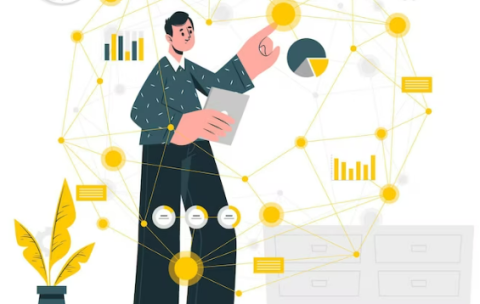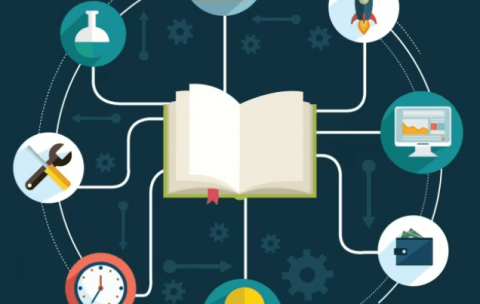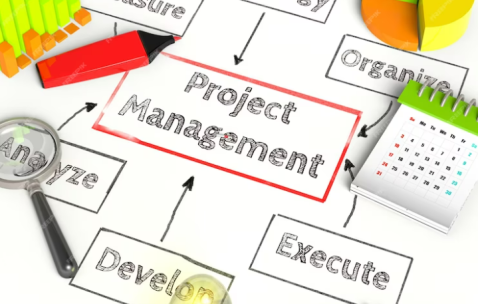Navigating Tomorrow: A Guide to Future Predictions
What you'll learn
Innovation Management and Creative Problem-Solving
What you'll learn
Deciphering Business: A Journey through Case Studies and Practical Insights
What you'll learn
Exploring Case Studies in Research and Insight
What you'll learn
Innovation and Creative Problem Solving in Research
What you'll learn
Cultivating Thought Leadership: A Comprehensive Study
What you'll learn
Environmental Management and Green Business Practices
What you'll learn
Mastering White Papers: From Concept to Execution
What you'll learn
Leadership in Diverse and Global Environments
What you'll learn
Mastering Data, Analytics, and Methodology for Strategic Decision Making
What you'll learn
Research Development and Projects in Research and Insight
What you'll learn
Critical Thinking for Data Analysis
What you'll learn
Mastering Review Articles: A Comprehensive Guide
What you'll learn
Sustainable Business Strategies
What you'll learn
Methodological Innovations in Technical Reporting
What you'll learn
Research Skills and Data Interpretation
What you'll learn
Pioneering Ideas: The Art and Impact of Thought Leadership
What you'll learn
Academic Outputs and Research Communication in Research and Insight
What you'll learn
Collaborative Project Management in Analytics
What you'll learn
In-Depth Sector-wise Analysis: Unleashing Business Potentials
What you'll learn
Featured Courses
Mastering Strategic Perspectives: A Comprehensive Guide
Welcome to “Mastering Strategic Perspectives: A Comprehensive Guide”, an in-depth …
₹390.00₹700.00
Mastering Strategic Perspectives: A Comprehensive Guide
What you'll learn
Mastering White Papers: From Concept to Publication
Welcome to “Mastering White Papers: From Concept to Publication,” a …
₹440.00₹750.00
Mastering White Papers: From Concept to Publication
What you'll learn
Ethical and Sustainable Business Practices for Tomorrow’s Leaders
Welcome to “Ethical and Sustainable Business Practices for Tomorrow’s Leaders,” …
₹440.00₹750.00
Ethical and Sustainable Business Practices for Tomorrow’s Leaders
What you'll learn
Mastering Review Articles: A Comprehensive Guide
Welcome to “Mastering Review Articles: A Comprehensive Guide,” an exclusive …
₹390.00₹700.00
Mastering Review Articles: A Comprehensive Guide
What you'll learn
Sector-wise Business Analysis: Strategies and Insights
Welcome to “Sector-wise Business Analysis: Strategies and Insights,” a pivotal …
₹440.00₹750.00
Sector-wise Business Analysis: Strategies and Insights
What you'll learn
Mastering White Papers: From Concept to Execution
Welcome to “Mastering White Papers: From Concept to Execution,” a …
₹490.00₹800.00
Mastering White Papers: From Concept to Execution
What you'll learn
Navigating Tomorrow: A Guide to Future Predictions
Welcome to “Navigating Tomorrow: A Guide to Future Predictions,” an …
₹440.00₹750.00
Navigating Tomorrow: A Guide to Future Predictions
What you'll learn
Leadership Profiles: Navigating Through The Realms of Influence
Welcome to “Leadership Profiles: Navigating Through The Realms of Influence,” …
₹450.00₹790.00
Leadership Profiles: Navigating Through The Realms of Influence
What you'll learn
Methodological Innovations in Technical Reporting
Welcome to “Methodological Innovations in Technical Reporting,” an advanced and …
₹440.00₹750.00
Methodological Innovations in Technical Reporting
What you'll learn
Mastery in Research Methodology
Welcome to “Mastery in Research Methodology,” a comprehensive course designed …
₹440.00₹750.00
Mastery in Research Methodology
What you'll learn
Popular Instructors
All Research Courses
Select Categories
Filter by
Instructor
Language
Negotiation and Conflict Management
Negotiation and conflict management are essential skills for MBA students, …
₹1,500.00₹3,000.00
What you'll learn
Innovation and Creative Problem-Solving
Innovation and creative problem-solving are pivotal in today’s rapidly changing …
₹1,600.00₹4,000.00
What you'll learn
Advanced Leadership and Team Dynamics
Advanced leadership and team dynamics are critical areas of focus …
₹1,450.00₹3,500.00
What you'll learn
Adaptive Project Management and Organizational Skills
Adaptive Project Management is a dynamic approach to managing projects, …
₹1,500.00₹3,000.00
What you'll learn
Promoting Ethical and Sustainable Business Practices in Research and Insight
This course is designed to provide participants with a comprehensive …
₹380.00₹750.00
What you'll learn
Exploring Case Studies in Research and Insight
This course aims to provide participants with a deep understanding …
₹310.00₹700.00
What you'll learn
Maximizing Academic Publications in Research and Insight
This course is designed to help participants understand the significance …
₹490.00₹800.00
What you'll learn
Academic Outputs and Research Communication in Research and Insight
This course focuses on the effective communication of research findings …
₹390.00₹750.00



































